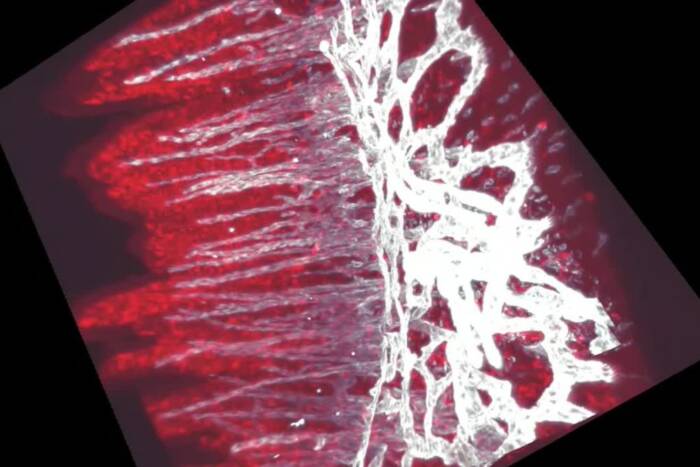Rockefeller’s 54th convocation awards Ph.D.s to 40 graduating students
 The Rockefeller University will award doctoral degrees to 40 students at its convocation ceremony today. Additionally, two esteemed researchers will receive honorary doctor of science degrees: James E. Darnell Jr., Vincent Astor Professor Emeritus and head of the Laboratory of Molecular Cell Biology at Rockefeller University, and Joan A. Steitz, Sterling Professor of Molecular Biophysics and Biochemistry at Yale University and an investigator at the Howard Hughes Medical Institute.
The Rockefeller University will award doctoral degrees to 40 students at its convocation ceremony today. Additionally, two esteemed researchers will receive honorary doctor of science degrees: James E. Darnell Jr., Vincent Astor Professor Emeritus and head of the Laboratory of Molecular Cell Biology at Rockefeller University, and Joan A. Steitz, Sterling Professor of Molecular Biophysics and Biochemistry at Yale University and an investigator at the Howard Hughes Medical Institute.
Each doctoral candidate will be presented for the degree by his or her mentor, a tradition dating back to the university’s first commencement ceremony in 1959. Honorary degree recipients will make brief remarks after receiving their degrees.
James E. Darnell Jr., doctor of science, honoris causa, has studied the synthesis, processing and transcriptional regulation of RNA for more than 50 years. His research supplied much of the original evidence for the widely accepted concept of how mRNA is formed in animal cells. Darnell’s early research on transcriptional activators culminated in the description of the first complete cell surface to nucleus signal transduction pathway: the JAK-STAT pathway. Darnell has received numerous awards, including the 2012 Albany Medical Center Prize in Medicine and Biomedical Research, the 2003 National Medal of Science and the 2002 Albert Lasker Award for Special Achievement in Medical Science. He is the author of the recently published RNA: Life’s Indispensable Molecule.
Joan A. Steitz, doctor of science, honoris causa, is best known for discovering and defining the function of small nuclear ribonucleoproteins (snRNPs), cellular complexes which play a key role in the splicing of pre-messenger RNA, the earliest product of DNA transcription. In addition, her laboratory has defined the structures and functions of other noncoding RNPs, including several produced by transforming herpesviruses. Steitz’s many honors include the 2008 Albany Medical Center Prize in Medicine and Biomedical Research, the 2006 Gairdner Foundation International Award and the 1986 National Medal of Science.


